Hay Festival Arequipa 2023 – Hay Festival Comunitario Arequipa
Hay Festival Arequipa 2023 was held November 9-12, with 109 activities with 145 guests from 15 countries. We will offer 17 talks and workshops for students at the Hay Joven programme and 7 events for children at Hay Festivalito.
Hay Forum Moquegua took place on 8 November with four activities on education and current affairs.
Events are available at Hay Festival Anytime.
Event HF1
El árbol de la queñua es vida
Event with the children of the Hogar de Cristo association
Plaza San Francisco
Read moreMotivated by their successful experience at the 2022 HFA, at the music and dance workshops run by the Hogar de Cristo, the children and young people involved have created a musical work full of life. They invite us to the opening of El árbol de la queñua es vida. This is a show featuring Huayno music and which will involve the active participation of the audience. In this way, we will celebrate this great tree that represents life. This is a dramatic work that aims to underline all that is good about Mother Earth and remember that there were once queñua forests in the highest areas of Arequipa. By reviving the rituals of our ancestors –who knew well that Mother Earth must be respected and venerated, and understood that dance and music are food for the soul– we can better appreciate the relationship between art and nature. The musical is a call to be aware of the importance of native plants. Wouldn’t it be wonderful if the streets of Arequipa were full of trees? Can we not dream of recovering those queñua woods in the city’s upper reaches? Together we can take the first steps to make this dream a reality. We enjoy the Huayno El árbol de la queñua es vida.
Musical director: Américo Martínez
Musical arrangement: Jesús Alberto Gonzales
Choreography and dance: Noemí Rojas Surco
Director of the Hogar de Cristo: Flor Esteban Ninantay
Sponsored by Fundación BBVA, Gloria-Yura and CREDICORP
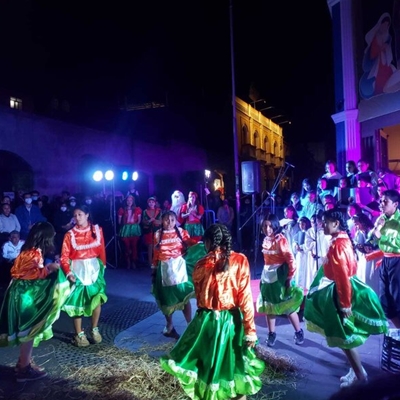
Event HF1-B
Complementary workshop with Gabriela Motta
Origami Workshop - Birds and Plants
Museo Municipal - Patio
Read moreSponsored by Fundación BBVA, Gloria-Yura and CREDICORP

Event HF2
Patricia Villanueva
Incas: A great story
Plaza San Francisco
Read moreWho were the Incas really? How did this great empire develop historically and culturally? Is its legacy still present in our contemporary culture? This illustrated book, created based on the exhibition Los incas. Más allá de un imperio, organised by the Lima Art Museum (MALI), aims to tackle these questions in a way never before done, based on the most recent and detailed scientific research. An event to give young people the chance to have a very current and close look at our ancestors, together with the archaeologist, visual artist and MALI curator, Patricia Villanueva.
Sponsored by Fundación BBVA, Gloria-Yura and CREDICORP
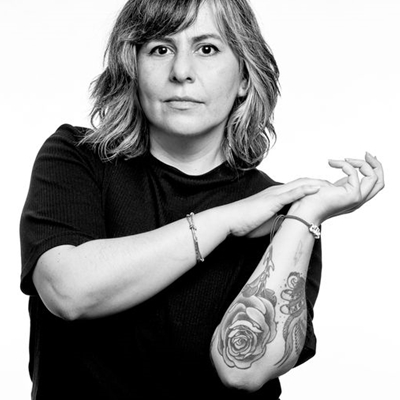
Event HF2-B
Complementary workshop with Marina Zileri & Fernando Arce
Clay Workshop - Finger Puppets
Museo Municipal - Patio
Read moreWith Marina Zileri and Fernando Arce The children will explore the possibilities of the world of clay, ceramic and small-scale puppetry, experiencing different creative processes, with the final result of making finger puppets. We will start with possibilities of faces, and then bodies, to end up with details that define our clay puppets.
Sponsored by Fundación BBVA, Gloria-Yura and CREDICORP
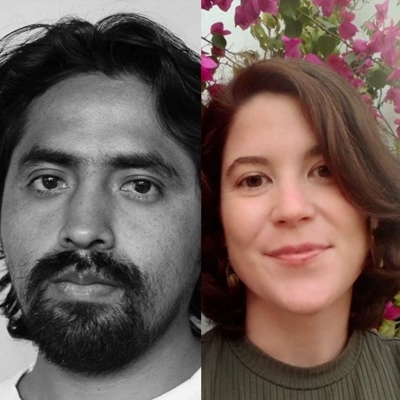
Event HF3
Presenting Los Hermanos Paz
Plaza San Francisco
Read moreThe siblings Andrea, Claudia and Cristóbal Paz will tell their iconic stories Chimoc en Machu Picchu, with a screening of their illustrations; they will also sing the songs associated with the story. After the storytelling, our friend Chimoc, the cheerful Peruvian Hairless dog, will appear to greet readers and dance with them to some of Los Hermanos Paz’s best-known songs.
With the support of Molycop

Event HF3-B
Complementary workshop with Carla Galdos & Raúl Romero
Reading mediation - On dogs and hairs
Museo Municipal - Patio
Read moreBased on stories about the Peruvian dog, or viringo, come with us to explore different and curious aspects of these animals. With Carla Galdos and Raúl Romero we will read different texts that feature the dog, and together we will talk about and exchange ideas and anecdotes about these faithful companions.
Sponsored by Fundación BBVA, Gloria-Yura and CREDICORP

Event HF4
Unicornio Azul in conversation with Omar Zevallos
The sea of souls
Auditorio del Museo Municipal
Read moreThe Arequipa artist and illustrator Rosita Charaja, better known as Unicornio Azul (“Blue Unicorn”), presents her first book, El mar de las almas, created together with the Chilean Nathalia CR. The book is created through dreams that reveal encounters in past lives, as a relationship of love is built up. The story explores the relationship between a distant past and the present, the development of rights over the course of history, and forms of love outside the heteronormative. In conversation with Omar Zevallos.
Sponsored by Fundación BBVA, Gloria-Yura and CREDICORP

Event HF5
Workshop on letters, shapes and stories with Ralph Bauer
Plaza San Francisco
Read moreSponsored by Fundación BBVA, Gloria-Yura and CREDICORP

Event HF5-B
Complementary workshop with Gabriela Motta
Collage workshop - words, images and stories
Museo Municipal - Patio
Read moreTogether with Gabriela: words, images and stories, playing and combining different materials in order to make new words, new images, new stories.
Sponsored by Fundación BBVA, Gloria-Yura and CREDICORP

Event HF6
Peruvian recipe book with Malena Martínez
Festín. A festival of flavour!
Plaza San Francisco
Read moreFestín is a cookery book that presents Peruvian ingredients in a light-hearted way, with striking and unusual recipes created especially for children by Pía León, one of the world’s finest cooks, and Malena Martínez, the outstanding researcher into Peruvian biodiversity. Mashua ice cream, oca doughnuts, muña lemonade? Yes, please, delicious! Festín is an invitation to discover the marvels that grow in the fertile lands of Peru and an opportunity to explore, discover and learn. A festival of colour and taste, and a banquet to share. At this event, we will meet Malena Martínez, who will reveal the great secrets of the ingredients and cuisine of our country.
Sponsored by Fundación BBVA, Gloria-Yura and CREDICORP

Event HF6-B
Complementary workshop with Diana Escobedo
Mini picanteros workshop with Diana Escobedo
Museo Municipal - Patio
Read moreTogether with the children, Diana will prepare a traditional Arequipa dish, soltero de queso, sharing ideas about the Arequipa origin of the ingredients that make up the dish.
Sponsored by Fundación BBVA, Gloria-Yura and CREDICORP
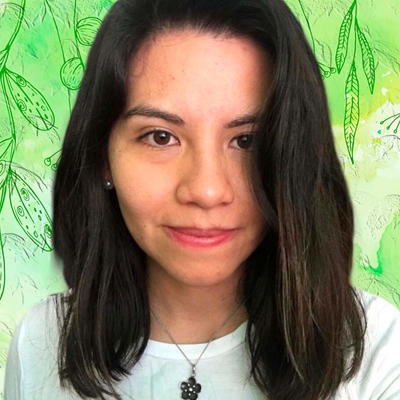
Event HF7-B
Complementary workshop with Gaby Gonzales
Yoga and emotion
Plaza San Francisco
Read moreSponsored by Fundación BBVA, Gloria-Yura and CREDICORP

Event HF7
Johseline Perochena Caro and Fiorella Rusca
From the land to the sea: A Yogi sequence on dettachment and freedom
Plaza San Francisco
Read moreWith Fiorella Rusca Jordán, a child and adolescent psychiatrist and certified yoga teacher; and Johseline Perochena Caro, an administrator and specialist in Special Education with experience in education and publishing projects. Based on the yoga book for all ages, De la tierra al mar, this event is an opportunity to experience yoga as a safe path to get to know ourselves, to grow and to become free. A path of return to our true natures, which is free and can free others. We present the book, we do yoga together, and we reflect on detachment and liberty.
The activity includes interpretation into sign language
Sponsored by Fundación BBVA, Gloria-Yura and CREDICORP
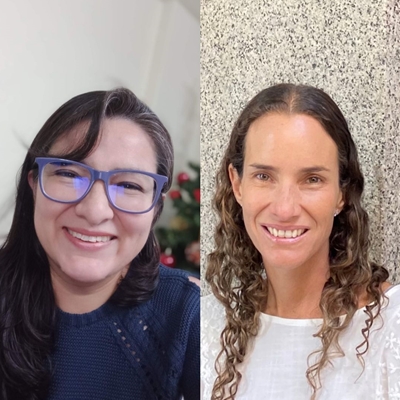
Event HF8
Carlos Diez Canseco and Doris Zuzunaga, with storyteller Alexis Valverde
The Earth and its minerals
Plaza San Francisco
Read moreSponsored by Fundación BBVA, Gloria-Yura and CREDICORP

Partner for Latin America

Principal Sponsors




Government Partner
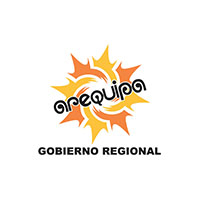
Institutional Partner

